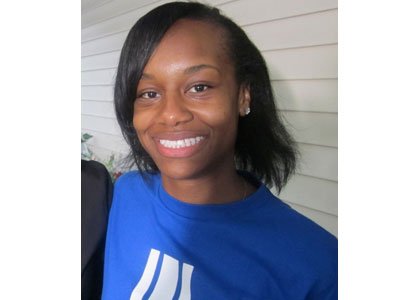BALTIMORE — Tiffani Bell and Kristy Tillman used social media to make a significant social impact and now their mission to do good deeds is spreading. Bell, a programmer who graduated from Howard University (HU) and Tillman, a graduate of Florida A&M University (FAMU), decided to help people in Detroit who were unable to pay their water bills.
The innovative idea was sparked by a Twitter conversation that took place in July 2014. The first version of the Detroit Water Project was quickly set up to test if people with delinquent water bills could be located. Afterwards, the website became more donor-centered. Monetary donations are now made through www.detroitwaterproject.org.
“Most [donors] are in the United States, but we have had people who are giving as far away as Australia,” Bell, 29, said.
In Detroit, Bell said that the city reported the average overdue water bill was
approximately $550. The water company in Detroit, and community organizations also provide referrals to people who need help. Individuals also discover the Detroit Water Project through word-of-mouth, social media or the press. Bell lives in Oakland, Calif. and now works full time on it. Up to five volunteers help return phone calls to inquirers.
The Baltimore Water Project was launched in February 2015, after Bell read that delinquent water bills are tacked on to property taxes in Baltimore just as they are in Detroit.
“What they will do is tack the water bill onto your property taxes. You can lose your house by not being able to pay your water bill. You have senior citizens who can’t pay their water bill, and they attach it to your entire house that you may have had 30 or 40 years over a water bill,” Bell said. “We’re in the United States. It’s supposed to be the most prosperous country in the world, but you have people which are right under our noses that we work with every day, we talk to, we see in public and they don’t have water at home. This is the most basic thing we need besides air and there are people that don’t have it.”
Bell strives to assist applicants within a week, although resolving situations can take a longer or shorter time period. Ten people have applied for help in Baltimore so far. One local bill that was submitted to the Baltimore Water project was $1,000. Steps are taken to ensure that people who apply for help genuinely need assistance, especially in cases where water bills are high.
“We may do more verification. We’ll call that person, ask for more details, or ask for them to submit things like proof that they live in the house and of the situation. We find out why they owe that much in the first place. In certain cases, we may not pay the entire bill off for them. In Detroit, for example, we’ll do something like pay enough to get the water on if it is off, or pay enough to allow them to get on to a payment plan, if the situation is not exceptionally dire,” Bell said.
Some applicants requesting help are experiencing employment problems while children reside in the home. In other situations, seniors with fixed incomes or people living on disability fall short financially. Applicants may need help paying water bills because their income disqualifies them from receiving help from existing programs. One woman who was placed on unpaid medical leave called to request emergency help.
“We…aim to spread this program around the United States, and also to get water recognized as a human right in the United States by law, meaning if you have financial hardships for example, people are not able to turn your water off,” Bell said.
The advocate who is making a positive change in two cities finds her work gratifying and exciting.
“It’s a good feeling,” Bell said. “It’s nice to know that your skill set is being used to impact people.”
Bell is scheduled to meet with Councilman Nick J. Mosby this month. She hopes to get his help to engage constituents who need assistance paying their water bills. Bell also wants to reach Baltimoreans who can help their neighbors in need by making donations.
To find out more information about the Baltimore Water Project or the Detroit Water Project, visit: www.detroitwaterproject.org/Baltimore or https://www.facebook.com/theutilityproject on Facebook. Baltimore residents who need assistance with their water bills may also call 1-844-505-4005.

